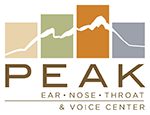[vc_row][vc_column][vc_column_text]You may be that famous guitar-shredding rockstar in a Colorado concert or the cello-wielding classical musician at the park, but your career could silence everything if you’re not careful.
According to the Hearing Loss Association of America’s fact sheet about hearing loss, more than 48 million Americans experience some degree of hearing loss, and close to 50 million also have tinnitus or ringing in the ears. About 22 million people in the country are exposed to these very high noise levels in the workplace. In the case of musicians and rockstars, the stage and the rehearsal rooms are their workplaces, and they’re there every day.
Hearing loss not only negatively impacts your job as a musician, but it also affects your physical and social health. Hearing loss is linked to the early onset of dementia and even premature death. This is because people with hearing problems are more prone to slips and falls, according to an article from the Harvard Medical School about the importance of hearing to physical and emotional wellbeing. The paper also stated that people who experience hearing loss often isolate themselves because their condition hinders them from communicating clearly.
Prolonged exposure to loud music can cause hearing loss. You don’t want to lose your career and meaningful relationships because of it. Read on to know how you can deal with it.
Prolonged Exposure
Hearing loss is not caused by just hearing something ear-piercing. It may also come from hearing sounds that you perceive as normal for a prolonged period.
For example, you may think it’s normal to listen to music through your headphones for an extended amount of time, but this habit may lead to gradual hearing loss. MedlinePlus, a health information portal by the U.S. National Library of Medicine, says that sounds above 80 decibels (dB) can cause significant damage to your ear. It also stated that some rock concerts could go above 100 dB.
Furthermore, a Finnish study of classical musicians and their hearing ability found that over 15% of its respondents suffered from permanent tinnitus. Over 41% of musicians in group rehearsals had temporary tinnitus and 18% of them in individual rehearsals also dealt with temporary tinnitus. What’s worse is that almost half of them had hyperacusis. It’s a hearing disorder that causes people to be overly-sensitive to sound. What would otherwise be a normal to you may be intolerable for those with hyperacusis.
How You Can Deal with It
The key to dealing with hearing loss when you’re a musician is prevention, which regular checkups to a hearing and balance clinic can do. An affordable pair of earplugs may also save your ears. The paper revealed that less than a quarter of the musicians surveyed used hearing protection during rehearsals. Another study published in the Journal of American Medical Association tested the effectivity of earplugs on the hearing of concertgoers.
Only eight percent of participants who wore earplugs experienced temporary hearing loss, while more than half of the respondents who didn’t wear earplugs encountered some hearing loss. Over 40% of the bare-eared concertgoers in the study also went home with symptoms of tinnitus.
Hearing loss should never be taken lightly. It can happen gradually, and you won’t even notice it until the effects are adverse. Give your ears a break. Turn down your speakers or use earplugs if you can’t help it. These small adjustments will help you continue making the sweet noise you love every day.
When to Get Help
If you already have trouble hearing, you need to see an audiologist immediately. Here at Peak ENT and Voice Center, we provide treatment for hearing loss patients in Colorado. Our hearing and balance clinic assures you that you get personalized treatment. Our trained physicians provide compassionate care and guidance in finding the right hearing aid for you.
Contact us today to get your hearing issues treated.[/vc_column_text][/vc_column][/vc_row]

